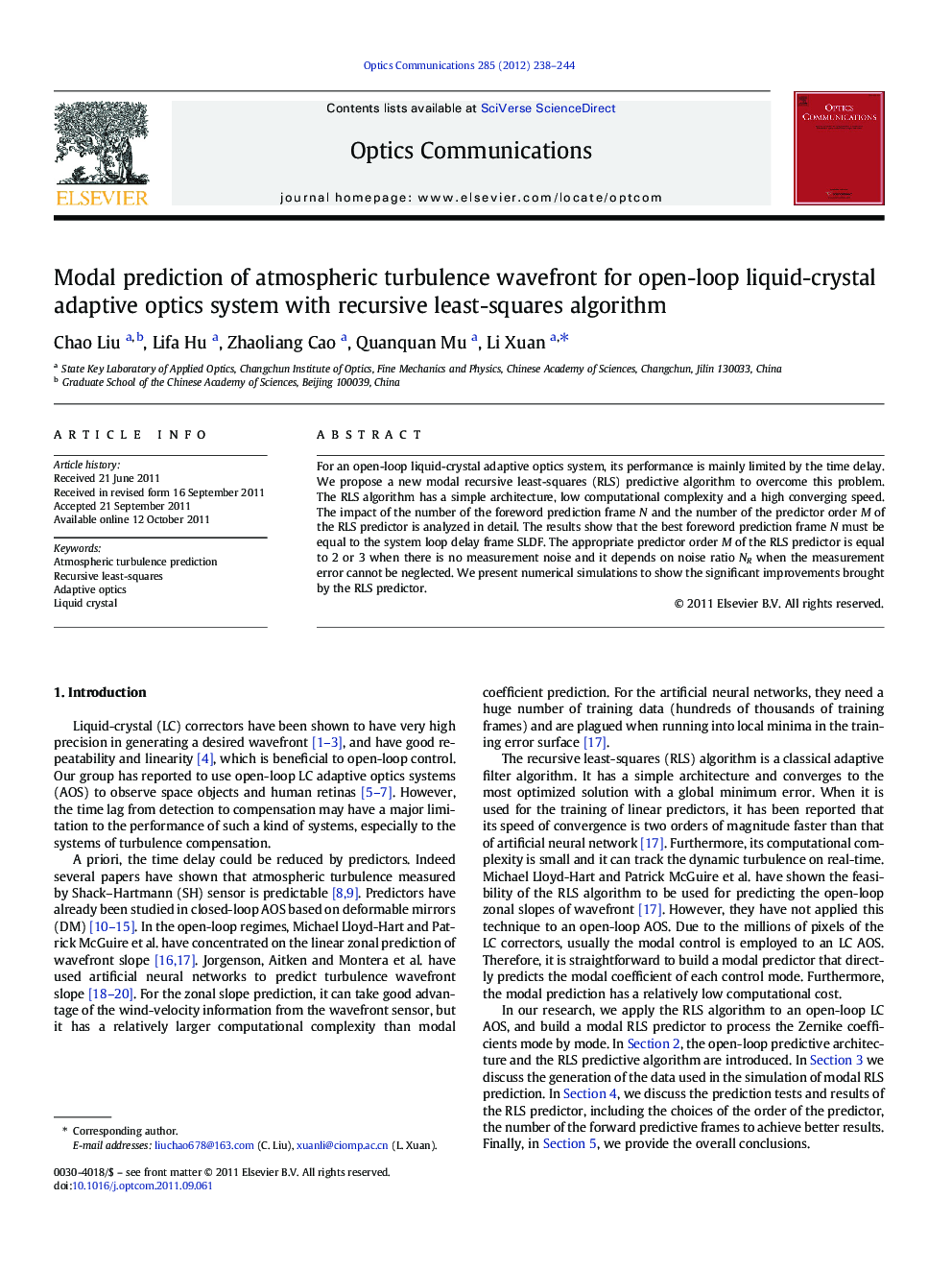| Article ID | Journal | Published Year | Pages | File Type |
|---|---|---|---|---|
| 1536412 | Optics Communications | 2012 | 7 Pages |
For an open-loop liquid-crystal adaptive optics system, its performance is mainly limited by the time delay. We propose a new modal recursive least-squares (RLS) predictive algorithm to overcome this problem. The RLS algorithm has a simple architecture, low computational complexity and a high converging speed. The impact of the number of the foreword prediction frame N and the number of the predictor order M of the RLS predictor is analyzed in detail. The results show that the best foreword prediction frame N must be equal to the system loop delay frame SLDF. The appropriate predictor order M of the RLS predictor is equal to 2 or 3 when there is no measurement noise and it depends on noise ratio NR when the measurement error cannot be neglected. We present numerical simulations to show the significant improvements brought by the RLS predictor.
